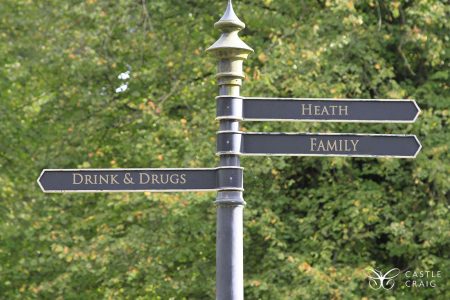Erectile dysfunction (ED) is the inability to have and keep an erection firm enough for sex. Many men will experience ED at some point in their lifetime and isn’t necessarily a cause for concern. If ED becomes an ongoing health concern causing distress and relational difficulties, a doctor may prescribe Viagra to support sexual performance. Viagra should be used as prescribed and with caution, particularly when taken by someone drinking heavily.
What is Viagra?
Viagra is the brand name of a prescription drug that is used to treat ED, a condition that affects men who find themselves unable to have or maintain an erection. Viagra works by increasing blood flow to the penis, which helps people have and keep an erection.
Viagra contains the drug sildenafil which is approved for this use in males ages 18 years + and belongs to a class of drugs called phosphodiesterase type 5 (PDE5) inhibitors. The drug is available in tablet form to be taken by mouth and comes in doses — of 25 mg, 50 mg, and 100 mg.
It is usually advised that Viagra be taken an hour before sexual activity, but it can be taken 30 minutes to four hours beforehand. Viagra typically starts to work between 30 and 60 minutes after taking the drug, but it is important to note that Viagra itself doesn’t cause an erection. The efficacy of the drug is reliant on sexual arousal.
Viagra is effective for up to five hours meaning, if someone is aroused, they should be able to experience an erection for that period of time.
Contact Us Today
Your path to lasting recovery starts here
What Does Viagra Do To Your Body?
We must first understand how someone has an erection to know how Viagra can help. When someone becomes aroused, their brain sends signals to the penis which leads to the release of a chemical called cGMP. This chemical acts on the erectile tissues causing an increase in blood flow to the area. After ejaculation, the body releases PDE-5, an enzyme that breaks down cGMP causing the loss of the erection. Viagra inhibits the effect of PDE-5 resulting in increased blood flow to the penis, making it easier to gain and maintain an erection.
Can You Mix Viagra and Alcohol?
Mixing drugs often causes complications. Research on mixing alcohol and Viagra is limited but there seems to be no clear sign that the risks of moderate alcohol use are made worse by Viagra and vice versa. As an example, a study published in Clinical Pharmacology and Therapeutics found no adverse reactions between Viagra and red wine.
Despite there being evidence that Viagra and alcohol don’t seem to interact, it may be ill-advised to drink whilst taking the drug. Long-term alcohol use is a common cause of ED, so treating ED with Viagra whilst drinking may limit its efficacy without limiting the negative side effects.
Side Effects of Viagra
Viagra’s side effects can be mild or become serious health concerns. Before taking Viagra it is important to speak to your GP or pharmacist so you fully understand what you may experience.
Initial side effects
Most mild side effects are self-limiting and may go away within a few days or a couple of weeks after you start taking Viagra. Mild side effects include headaches, flushing, digestive issues, vision changes, nasal congestion, physical pain, nausea, dizziness, and rashes.
Serious side effects
Serious side effects from Viagra aren’t common, but they can occur. They include damage to the eyes, loss of hearing, tinnitus, allergic reactions, long-lasting and painful erections, low blood pressure, and heart problems such as heart attack, irregular heartbeat, and strokes. If you start to experience any serious side effects, it is important to seek medical support immediately.

What Does Alcohol Do To Your Body?
Alcohol is a drug that is absorbed into the bloodstream via the digestive system, namely the stomach and small intestine. Alcohol circulates throughout the body affecting all organs until it is broken down by the liver and eliminated.
Someone will begin to feel drunk when alcohol reaches the brain and this experience can vary considerably depending on several factors including an individual’s physical make-up, circumstances, type of alcohol, and any medication they may be on. Despite these variables, what is the same for all is that alcohol depresses the brain and slows down major functions such as breathing, heart rate, and thinking.
When alcohol enters the bloodstream, it widens the blood vessels causing flushing, a feeling of warmth, and a drop in blood pressure. As the concentration of alcohol in the bloodstream increases, the brain becomes less effective at controlling bodily functions. At first, this may make someone feel calm and happy but continued drinking can cause poor decision-making, depressed mood, slurred words, blurred vision, and loss of coordination.
Side Effects of Alcohol
Alcohol affects both the mind and the body, despite how much someone may drink. Every organ in the body can be affected by drinking, but some are more at risk of damage. The harmful effects of alcohol misuse sometimes don’t become apparent until much later in life, making them difficult to reverse.

Discover How We Can Help You
Brain
Alcohol’s effects on the brain can be felt quickly and are initially pleasurable and calming. This often encourages further drinking. However, alcohol interferes with the brain’s communication pathways and can affect the way the brain looks and works. Prolonged alcohol use is linked to brain defects and associated cognitive, emotional, and behavioural impairments.
Damage to certain regions of the brain significantly impacts mental well-being and the body’s ability to function optimally. As an example, the cerebellum controls movement and alcohol-related cerebellum damage causes motor incoordination leading to loss of balance and an increased risk of accidents.
Heart
Heavy alcohol consumption over a long period of time, or drinking too much on a single occasion, can damage the heart. Alcohol weakens the heart which impacts how oxygen and nutrients are delivered to other vital organs. Alcohol use also increases the likelihood of developing heart disease and leads to an increased risk of sudden cardiac death and cardiac arrhythmias.
Liver
The liver is one of the most complex organs in the body. It is resilient and capable of regenerating itself, however, each time the liver cleans the blood of alcohol, some of its cells die. The liver can develop new cells, but prolonged alcohol misuse reduces its ability to regenerate and is associated with liver function problems and the development of alcohol-related liver disease.
Alcohol-related liver disease is experienced as nausea, loss of appetite, jaundice, confusion, drowsiness, vomiting blood or blood appearing in stools, and swelling in the ankles and/or abdomen.
Pancreas
The pancreas regulates the body’s blood sugar levels. Alcohol causes the pancreas to produce toxic substances that can eventually lead to pancreatitis, inflammation, and swelling of the blood vessels which prevents proper digestion. This increases the risk of pancreatic cancer.
Pancreatic conditions can go undetected in the early stages and are therefore left untreated which may lead to an acute pancreatic attack causing abdominal pain, diarrhoea, nausea, fast heart rate, and fever.
Immune System
Alcohol affects all cells of the immune system, limiting the body’s ability to defend and heal itself. This can lead to an increased risk of serious infections such as acute respiratory stress syndromes (ARDS), sepsis, alcoholic liver disease (ALD), and certain cancers. Alcohol consumption is also associated with slower and less complete recovery from infections and physical traumas.
What Happens When You Mix Viagra With Alcohol?
Research shows that drinking in moderation generally doesn’t affect erectile functioning but drinking too much over time can make it difficult to experience an erection in response to arousal. This is because alcohol inhibits the functioning of neural pathways that are necessary for arousal, blood circulation, and nerve sensitivity.
Whilst there is no direct interaction between Viagra and alcohol, the negative effect that alcohol has on the body, can reduce the effectiveness of Viagra. As such, drinking too much alcohol and taking Viagra is counterproductive.





What Are the Side Effects of Mixing Viagra and Alcohol?
Those who misuse alcohol and take Viagra recreationally may have a higher risk of side effects. A recent study showed that over 45% of men who took Viagra with alcohol for recreational purposes had a higher risk of side effects, including facial flushing, headaches, chest pain, changes in vision, and light-headedness.
Long-term use of alcohol has been shown to:
- cause inflammation of the prostate gland which is linked to ED. As such, drinking alcohol and taking Viagra over a long period of time can increase someone’s chances of experiencing ED;
- decrease testosterone production (responsible for male sexual functioning) and increase oestrogen production, which counters the desired effects of Viagra; and
- worsen Viagra’s side effects. For example, if a person drinks heavily while on Viagra, they may experience extreme dizziness and blurred vision.
Can Alcohol Cause Erectile Dysfunction
Chronic and persistent alcohol use is known to induce sexual dysfunction, which leads to marked distress and interpersonal difficulty. Sexual dysfunction in someone misusing alcohol may be due to the depressant effect of alcohol, alcohol-related disease or psychological issues related to alcohol use. Alcohol abuse is also the leading cause of impotence and virtually all aspects of the human sexual response such as reduced sexual desire, premature ejaculation, and ejaculatory incompetence.
Long-Term Adverse Effects of Viagra
Because Viagra is a treatment, not a cure, for ED, many choose to use the drug for an extended period. But there are long-term side effects that may be experienced from using Viagra on an ongoing basis.
Sensory
Various visual and auditory side effects of long-term use of Viagra have been studied and reported. There have also been rare cases of men developing an eye condition that can cause a sudden loss of vision.
Gastrointestinal
Viagra affects the gastrointestinal (GI) tract and the genito-urinary tract (GU). Long-term use of Viagra has also been shown to cause indigestion and can lead to diarrhoea, gastritis, vomiting, and abdominal pain. Additional side effects can include issues relating to urinary tract functions, for example, incontinence, increased risk for urinary tract infections, and cystitis.
Psychological
Long-term Viagra use can lead to psychological dependency. Someone struggling with ED may not trust their body to induce an erection naturally and so feel they have no choice but to make use of Viagra in order to have a fulfilling sex life. This can lead to Viagra addiction or Viagra overdose in some cases. Viagra dependence may be particularly common if there are unresolved relational issues caused by sexual dysfunction.
Contact Us
It can be hard to reach out for help if you are worried about your alcohol use, are using Viagra, and/or experiencing ED. Our experienced team at Castle Craig is used to helping people feel comfortable and talk through issues that might be sensitive to them. Feel free to get in touch with us to discuss any concerns you have about your health or substance use.



